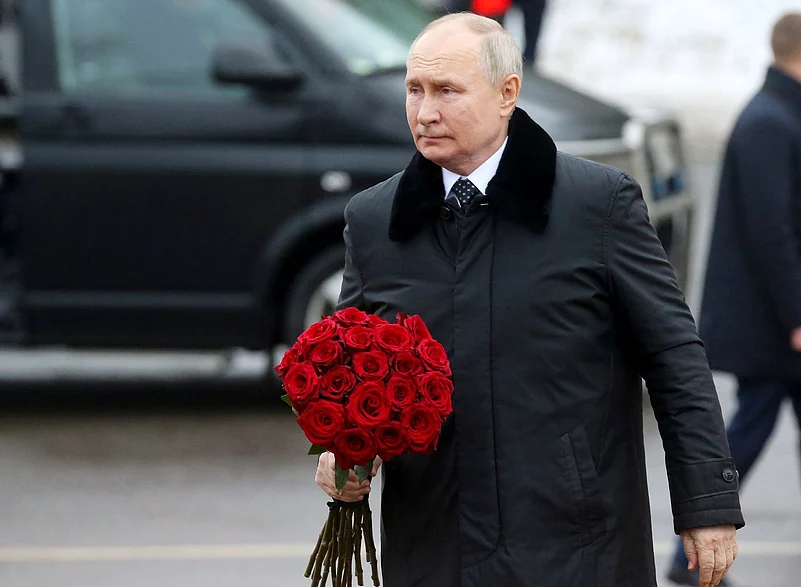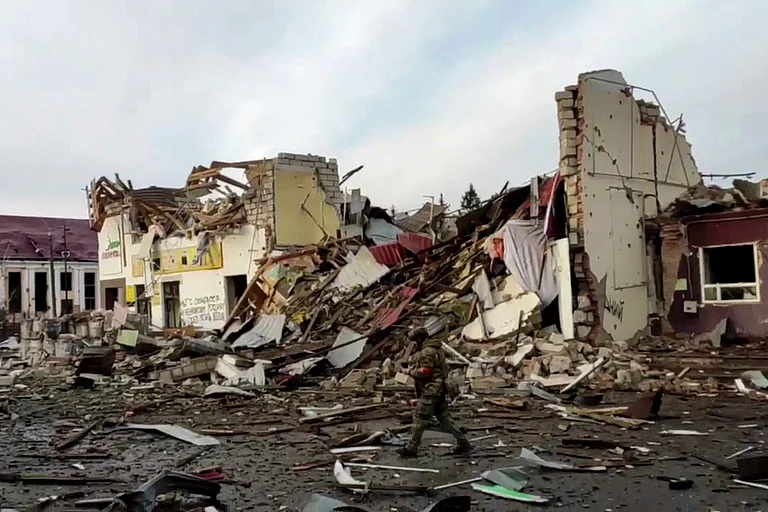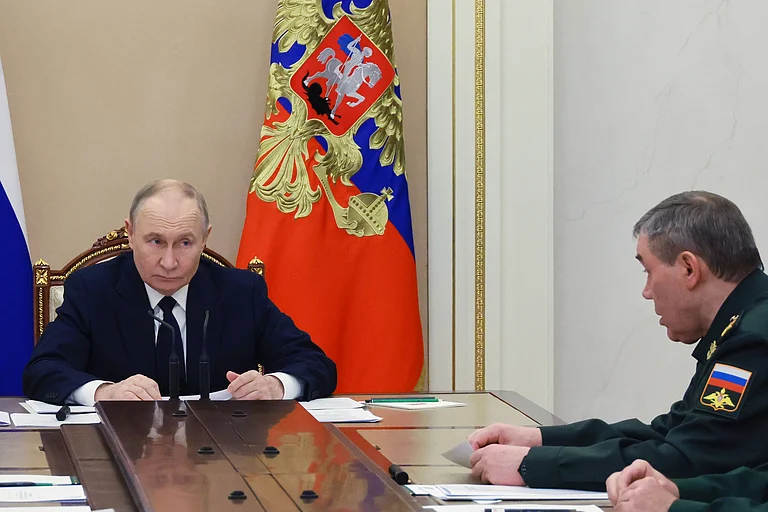Russian President Vladimir Putin criticised Europe for "Russophobia" and condemned the Baltic States over human rights during the unveiling of a World War Two memorial, as reported by Reuters. The Soviet Union lost around 27 million people during World War II.
Speaking in the Leningrad region for the 80th anniversary of the end of the Nazi siege, Putin said, "The regime in Kyiv exalts Hitler's accomplices, the SS men... In a number of European countries, Russophobia is promoted as state policy."
The Germans' aims then were to steal the Soviet Union's resources and eliminate its people, he said.
"In the Baltic states, tens of thousands of people are declared subhuman, deprived of their most basic rights, and subjected to persecution," Putin said, referring to migration crackdowns. Moscow has repeatedly accused the Baltic nations of xenophobia and treating Russian minorities as "second-class".
Baltic States: The Baltic States, also known as the Baltic countries, are three independent nations—Estonia, Latvia, and Lithuania—located on the eastern coast of the Baltic Sea. They secured their independence from the Russian Empire after World War I in 1918 and later gained freedom from the Soviet Union in the early 1990s.
What is Russophobia?
Russophobia is defined in the Russian "Explanatory Dictionary" as "hostility towards all things Russian as well as Russian people themselves, considered dangerous for other nations."
The Russian-language Wikipedia page aligns with this definition, describing it as a "prejudiced, suspicious, unfriendly, hostile attitude towards Russia and Russians" and a "special case of xenophobia".
Historically, Russophobia has encompassed state-sponsored and grassroots mistreatment, discrimination, and propaganda with anti-Russian sentiment. In Europe, it was rooted in various, more or less fantastic fears of Russian conquest.
The term "russophobia" was introduced by Fyodor Tyutchev, a Russian poet and diplomat, in 1867. He used it in a letter to his daughter Anna Aksakova, applying it to pro-Western Russian liberals who, under the guise of following liberal principles, developed a negative attitude towards their own country, consistently aligning with a pro-Western and anti-Russian stance.
With the Ukrainian conflict, the term gained prominence in Russian media, particularly during the protests in Kyiv, where Ukraine and its government were routinely accused of attempting genocide against the "Russian-speaking population." However, some argue that the term "Russophobia" is used to justify Moscow's war crimes in Ukraine.
Remarks at UN Security Council on 'Russophobia'
During a UN Security Council session on "Russophobia" in March 2023, three briefers presented dissenting views, with two highlighting Russophobia in Ukraine and one countering that claim as a colonial endeavour to justify war crimes.
The meeting, requested by the Russian Federation, saw delegates offering their own perspectives.
Kirill Vyshinsky, Executive Director of Rossiya Segodnya, detailed several examples of modern Ukrainian Russophobia, highlighting the forceful expulsion of the Russian people, lies against Moscow, and the open hatred of Russians. He said that despite nearly one-third of Ukraine’s population referring to Russian as its native language, the last 20 years have seen a deliberate shrinking of space.
“We see an ideology of hatred for everything Russian, hatred of Russians, hatred of anyone who is somehow linked to Russia,” he added.
Timothy Snyder, Professor of History at Yale University, pointed out that the term "Russophobia" is an attempt to justify the Russian Federation’s war crimes in Ukraine. He stressed, "The claim that Ukrainians are sick with a disease called ‘Russophobia’ is simply colonial rhetoric and part of a larger strategy of hate speech."


























